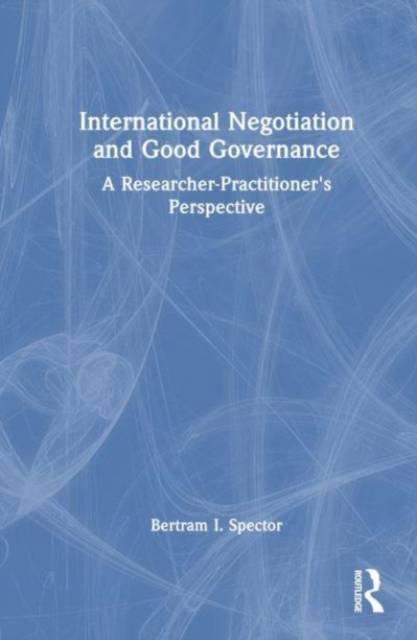
- Afhalen na 1 uur in een winkel met voorraad
- Gratis thuislevering in België vanaf € 30
- Ruim aanbod met 7 miljoen producten
- Afhalen na 1 uur in een winkel met voorraad
- Gratis thuislevering in België vanaf € 30
- Ruim aanbod met 7 miljoen producten
International Negotiation and Good Governance
A Researcher-Practitioner's Perspective
Bertram I SpectorOmschrijving
This book investigates two critical political science domains: international negotiation processes and the establishment of good governance practices, using real-world examples. The author's observations, analyses, and recommendations provide a unique blend of researcher and practitioner experiences that were implemented in conjunction with government authorities, businesses, the media, and citizen groups in over 40 countries.
The book examines negotiation process dynamics from several perspectives: the inclusion of new actors; the impact of psychology, creativity, and values; the significance of post-agreement negotiations; and how negotiations that resolve civil wars need to incorporate explicit good governance provisions. From the governance perspective, the book analyzes the age-old problem of corruption, which is often a major factor responsible for bad governance practices, economic dysfunction, and widespread poverty. It explores the importance of strengthening citizen advocacy for reforms, designing and implementing anti-corruption strategies for fragile states, customizing anti-corruption strategies through targeted risk assessments, and deconstructing the negotiation give-and-take in corrupt transactions to reduce their impact. Each chapter incorporates the author's practitioner experiences with his research contributions, along with examples of events he experienced when implementing programs around the world.
This unique volume will be used in university courses on international negotiation, conflict resolution, governance practices, international development, and comparative politics, as well as providing a useful resource for researchers, policymakers, practitioners, NGOs, donor organizations, and grant-giving organizations.
Specificaties
Betrokkenen
- Auteur(s):
- Uitgeverij:
Inhoud
- Aantal bladzijden:
- 156
- Taal:
- Engels
Eigenschappen
- Productcode (EAN):
- 9781032548098
- Verschijningsdatum:
- 2/10/2023
- Uitvoering:
- Hardcover
- Formaat:
- Genaaid
- Afmetingen:
- 156 mm x 233 mm
- Gewicht:
- 452 g

Alleen bij Standaard Boekhandel
Beoordelingen
We publiceren alleen reviews die voldoen aan de voorwaarden voor reviews. Bekijk onze voorwaarden voor reviews.











